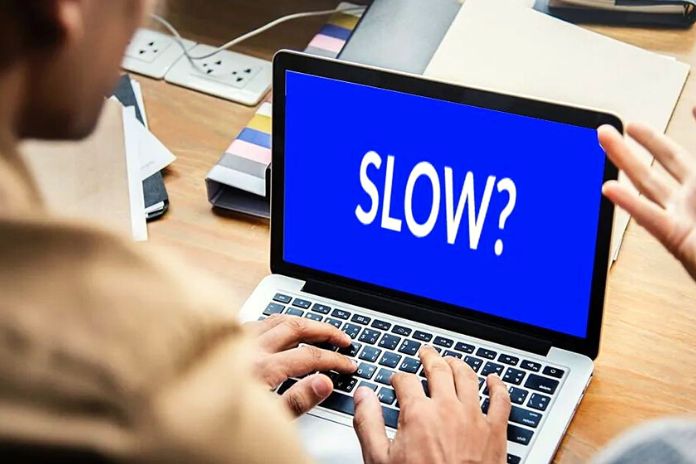A slow computer, which takes several seconds to load programs, web pages, or even start up, is a problem that anyone, at some point, is forced to deal with. Much more common than you think, the slowness of a device is undoubtedly a frustrating event, which can arise from several reasons. Let’s see them together and also illustrate the possible solutions.
Reasons For Slow Computers: How Vital Is Maintenance?
A computer becoming slow over time is an indisputable fact that no one seems to be uncertain about. A five-year-old device does not meet the requirements for the use of software that, following updates, becomes noticeably heavy and elaborate. What you don’t understand, however, is why many users don’t even bother doing those necessary device care and maintenance tasks. Although routine activities cannot prevent the inevitable aging of the machine, they could at least slow down the process.
Hard Disk And Memory Are The Main Reasons For A Slow Computer
As you know, memory and hard drive always suffer first. The operations that should be carried out over the years to preserve healthcare
- Continuous driver update: essential to avoid slowing down the device and ensure its health and functioning. On Windows 10, it is allowed to run by going to the update and restoring the item.
- Check for any conflicts with connected external devices not recognized by the system. On Windows, you can do this by clicking on the device management item. The media are marked with symbols:! for devices with problems; X indicates not found and ? identifies the missed detection
- Periodic monitoring of the hard disk status. If the hard disk is fragmented, it is necessary to perform defragmentation so that the files return to have consistency and continuity. On Windows, you can run it by clicking on the tools item. On the same menu, a disk scan is allowed to detect errors.
- Cleaning the Windows registry: You can start it with some programs such as Ccleaner. This operation deletes any incorrect entries – perhaps related to uninstalled programs – left in the Windows registry. This operation is not recommended in many ways, as it could cause irreparable damage to the operating system.
- Check – by going to the control panel item, the processor’s performance is not limited by the activation of the power saving mode. A problem that occurs primarily with laptops.
- Last but not least is the physical cleaning of the device. By itself, dust does not directly affect computer performance. However, if the air vents are blocked, this could induce a state of heating in the device.
Boost The Performance Of An Older Device
If you are faced with a decrease in performance caused by the aging of the hardware components, the solution can be to expand the RAM or install an SSD. The improvement, in terms of speed and execution, will be immediate. If the computer should be slow even after all these precautions, the most drastic solution is to format, which returns the device to its basic settings. Although this option scares many PC owners, today – especially with new operating systems – it is possible to execute it quickly and comfortably.
Reasons For Slow Computer
However, regardless of the physiological aging process of the device’s hardware components, the reasons for a slowdown of your computer are often trivial and quickly solved.
Temporary Files
To facilitate access to information often consulted by Windows or in the browser, the system automatically creates temporary file folders, which, if they become overabundant, risk slowing down the computer. The solution is to eliminate them with special cleaning programs: one of the best in circulation is CCleaner. However, you can also do this with the Windows Disk Cleanup tool.
Startup And Autorun Programs
If the device is already slow starting up, the problem could be caused by some programs that start automatically when the device is turned on. On Windows, you can disable them from the control panel. The same thing can be said when using programs simultaneously, weighing down the RAM and causing the computer to crash in the most extreme cases. It is helpful to disable the programs that work in the background and, if the system crashes, perform a restart of the device.
Browser Extensions
When there is the presence of multiple extensions installed in your browser, web browsing is significantly affected. Then deactivate the extensions to make navigation more streamlined and flexible.
Slow Network
Especially when using very demanding cloud applications and online games, an internet line that does not guarantee specific requirements could slow down some operations performed on the device. Always install an internet line that responds quickly to your needs.
Spyware And Malware
Another prevalent problem with PC slowdown is the presence of malware or spyware in your operating system. Always perform proper scans to keep your device protected. Evaluate if your system does not already have a basic antivirus setting in Windows 10. This is important because otherwise, installing an external antivirus may take up additional memory.
Also Read: Applications & Data: Should We Migrate To The Cloud?

